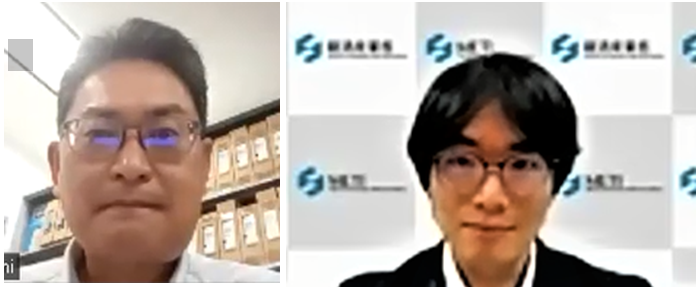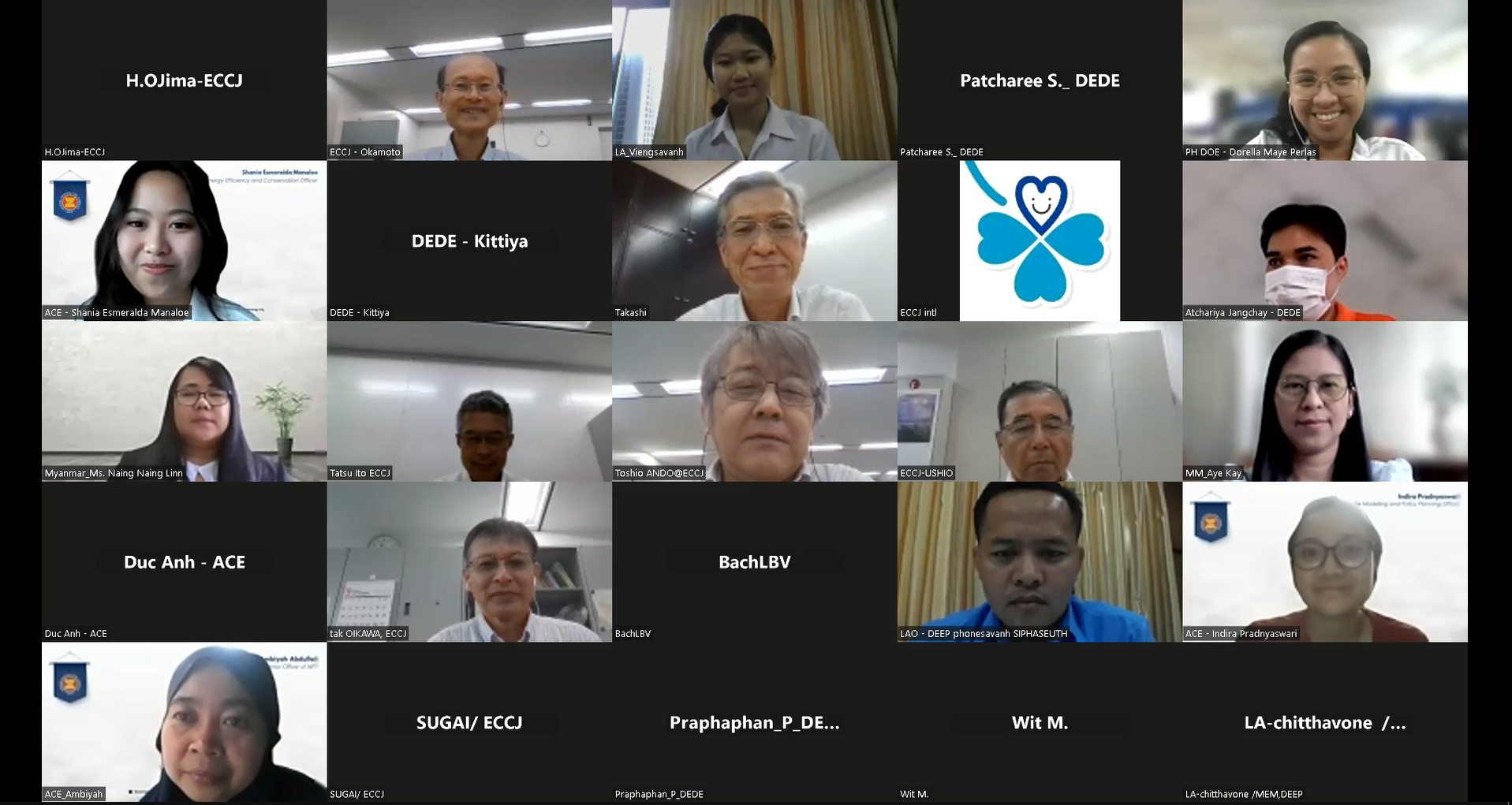ECCJ held a carbon neutrality audit online seminar in the FY2023 energy conservation support project for ASEAN countries
<Meeting>
Under the instruction and financial support of the Agency for Natural Resources and Energy (ANRE), the Energy Conservation Center, Japan (ECCJ) held a Carbon Neutrality (CN) Audit Online Seminar on September 7, 2023 as part of the current fiscal year’s AJEEP (ASEAN-Japan Energy Efficiency Partnership) Scheme 5 activities. In the seminar, CN project formulation, CN guidelines and CN audit procedures contributing to decarbonized management were explained. Details of CN activities implemented by private companies were also introduced.
(1) METI keynote address: Contributions made by Japan for realizing decarbonization in Asia
(2) Lectures by experts: Explanations of CN project formulation, CN guidelines, CN audit procedures and ZEB audits
(3) CN audit case example introductions: Introductions to case examples of industry-related CN audit results and renovated ZEB audit results
 |
 |
| Opening greetings (ECCJ) Keynote address (METI) | Participants from each ASEAN country |
As part of the current fiscal year’s AJEEP Scheme 5 Program, it is intended to conduct CN audits in the ASEAN region for the first time. Before actually proceeding with the CN audits, an online seminar was held to ensure that the CN audits would be smoothly conducted. A total of 31 persons participated in the seminar, comprising 23 persons focused on persons responsible for implementing the planned CN audits and government policymakers in each ASEAN country, together with eight representatives of the ASEAN Centre for Energy (ACE). CN project formulation, CN guidelines, CN audit procedures and ZEB audit methods were explained. CN audit case examples implemented in the industrial sector and building sector were also introduced.
(1) In the keynote address, an ANRE representative introduced the “Activities implemented by Japan for realizing decarbonization in Asia”, and these could be shared within the ASEAN paticipants.
(2) For CN audits in the industrial sector, CN project formulation, CN guidelines, and CN audit practical procedures were explained, and understanding was obtained from the persons in charge of conducting CN audits.
(3) CN audit (ZEB audit) guidelines and audit methods in the building sector were explained, and there was a question and answer session relating to the CN audit which is to be conducted in a public hospital in Thailand.
(4) Regarding the results of CN audits conducted in Japan, case examples from the industrial sector and building sector were introduced, and understanding was gained from the ASEAN participants.
(5) Based on the information sharing in the online seminar held this time, it is intended to conduct the ASEAN region’s first CN audit from September 25 in a factory in Malaysia. Additionally, it is planned to conduct an audit at the end of November in a public hospital in Thailand as a ZEB audit in the building sector.
(6) Although the CN audits to be conducted in the current fiscal year consist of one factory and one building, many recommended companies have been nominated for audits. The wide implementation of CN audits based on the results obtained in the current fiscal year will train the human resources capable of conducting CN audits in ASEAN countries, and the formulation of CN projects will in turn lead to benefits for Japanese companies.

